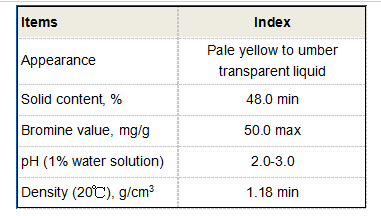Exploring the Benefits of Zinc HEDP in Various Applications
The Importance of Zinc HEDP in Various Applications
Zinc HEDP, or Zinc Hydroxyethylidene Diphosphonic Acid, is a significant compound that belongs to the class of diphosphonic acids. It plays a crucial role in multiple industrial applications, particularly in water treatment and corrosion inhibition. Understanding its properties and benefits can provide valuable insights for industries that rely on effective water management and corrosion prevention solutions.
Structure and Properties
Zinc HEDP is a zinc salt of hydroxyethylidene diphosphonic acid. Its unique molecular structure features two phosphonate groups, which are known for their strong chelating abilities. This structure allows Zinc HEDP to bind effectively with metal ions, making it a particularly useful agent in treating water systems that often contain various metal contaminants. The ability to form stable complexes helps in controlling the levels of free metal ions, thereby reducing the risk of scale formation and corrosion.
Applications in Water Treatment
One of the primary applications of Zinc HEDP is in the field of water treatment. In industrial water systems, various factors promote the formation of scale and corrosion, leading to costly downtime and maintenance. The incorporation of Zinc HEDP into such systems helps mitigate these issues. It acts as a scale inhibitor, preventing the precipitation of mineral deposits on equipment and pipelines. This is particularly relevant in cooling water systems, where scale formation can significantly disrupt the cooling process and reduce operational efficiency.
zn hedp 锌hedp

Moreover, Zinc HEDP provides effective corrosion inhibition. In environments where metal surfaces are exposed to harsh conditions, such as those found in oil and gas production or marine applications, Zinc HEDP can form a protective layer on the metal surface. This layer helps to minimize metal ion leaching and extends the lifespan of equipment, reducing maintenance costs and enhancing overall system reliability.
Advantages Over Other Inhibitors
Zinc HEDP offers several advantages compared to other corrosion inhibitors. First and foremost, its compatibility with other chemicals used in water treatment systems makes it an excellent choice for formulations requiring multi-functional approaches. Additionally, the environmental profile of Zinc HEDP is relatively favorable compared to certain traditional inhibitors, making it a more sustainable option. Its biocompatibility is beneficial in applications where adherence to environmental regulations is essential.
Conclusion
As industries continue to seek solutions that enhance operational efficiency and reduce environmental impact, Zinc HEDP stands out as a vital component in water treatment and corrosion inhibition. Its unique chemical properties help address prevalent challenges associated with scale and corrosion, making it indispensable in a variety of sectors ranging from power generation to oil and gas. The ongoing development and research into Zinc HEDP and similar compounds will likely lead to even more efficient formulations and applications, further reinforcing its role in modern industrial practices.
In this age of technological advancement and environmental consciousness, the significance of Zinc HEDP cannot be understated; it is an essential tool for industries looking to optimize their processes and maintain their competitive edge.
-
lk-319-special-scale-and-corrosion-inhibitor-for-steel-plants-advanced-solutions-for-industrial-water-systemsNewsAug.22,2025
-
flocculant-water-treatment-essential-chemical-solutions-for-purification-processesNewsAug.22,2025
-
isothiazolinones-versatile-microbial-control-agents-for-industrial-and-consumer-applicationsNewsAug.22,2025
-
scale-inhibitor-key-solutions-for-water-system-scale-preventionNewsAug.22,2025
-
organophosphonates-versatile-scale-inhibitors-for-industrial-water-systemsNewsAug.22,2025
-
scale-and-corrosion-inhibitor-essential-chemical-solutions-for-water-system-maintenanceNewsAug.22,2025





